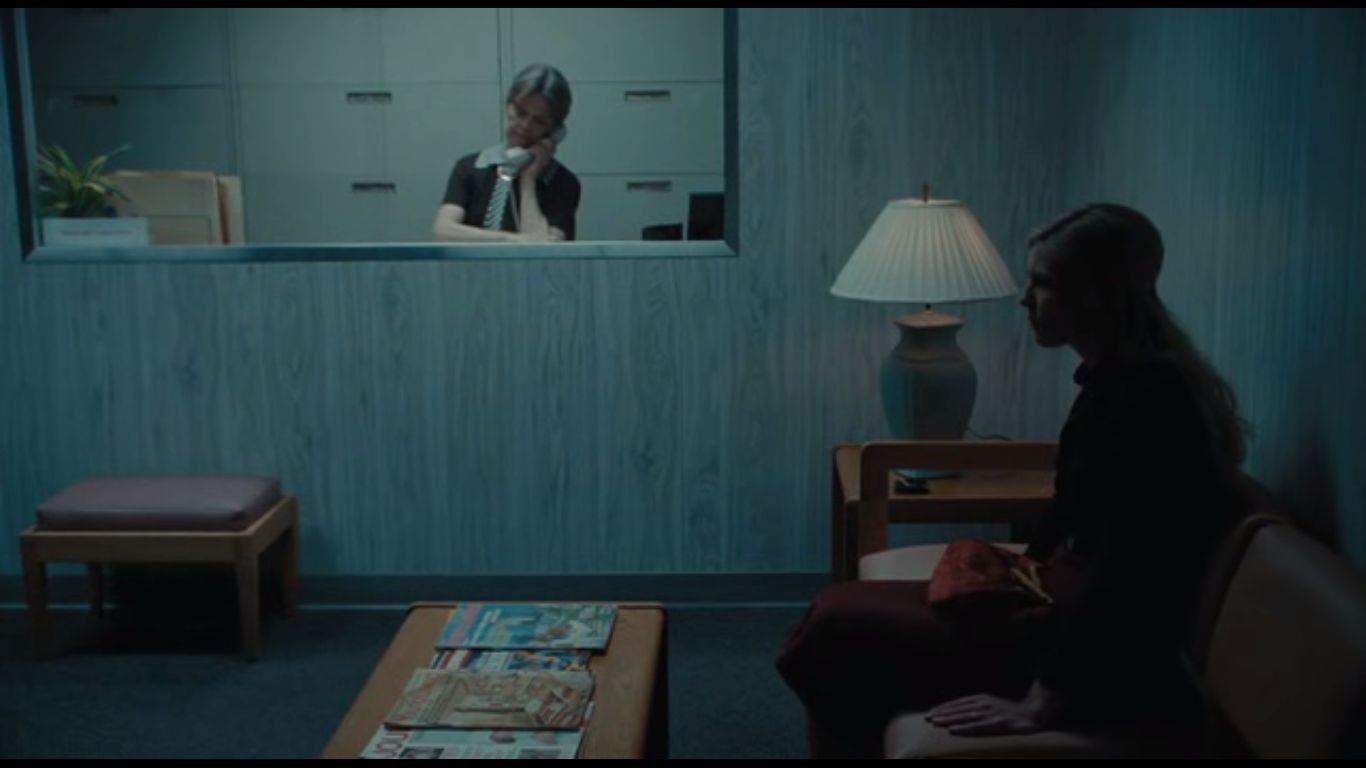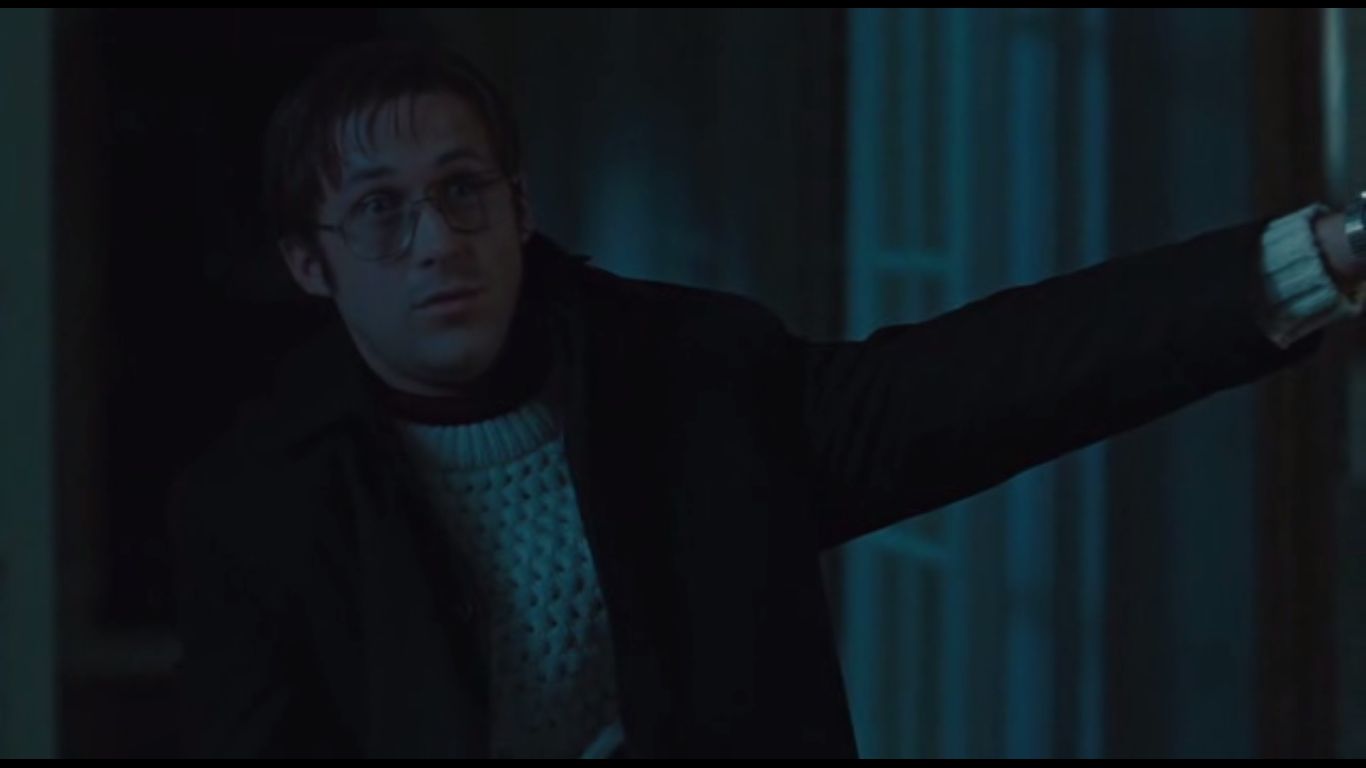All Good Things (2010)
/
(spoilers ahead)
All Good Things is a fascinating movie that maybe doesn’t completely satisfy in the end, but is still able to hold the audience’s attention all the way through. It’s the story of David Marks and Katherine McCarthy (or the real-life story of Robert Durst and Katherine McCormack on whom the movie is based) and it’s clear why director Andrew Jarecki was intrigued by this story. Its biggest problem is that the movie can’t provide a satisfying conclusion because it has to stay true to the facts and the facts don’t provide an answer either. But this doesn’t lessen the movie’s power, which is mostly due to the strong performances. Ryan Gosling is as good as always, but the real surprise is Kirsten Dunst. She surely was never a bad actress, but she shines so brightly in this movie that when her character disappears, the movie loses a lot of its appeal. Still, the direction is strong and the score keeps you entertained for the last 30 minutes where the doomed romance turns into an unsolved crime mystery.
One aspect that spoke to me was the relationship between David Marks (Gosling) and his father Sanford Marks (Frank Langella, at his despicable best), which eventually serves as one possible explanation for David’s behavior, or at least parts of it. It reminded me a little of a similar constellation in Remember Me, only with a very different ending. Their difficult relationship is made explicit right during the opening credits, a home video flashback of David as a child, playing happily with his mother, while his father stays in the background, showing no interest in his son. We learn later that David’s mother committed suicide and David was present, not being able to save her. This trauma supposedly comes back to haunt him in his adult life and the movie step by step reconstructs what happened with David and how his father was involved.

The first scene after the credits shows a disagreement between David and his father, and while it’s not something big, it sets the tone straightaway. What’s noticeable here is how David is a little rebellious without actually standing up to him. The first meeting between Sanford and Katie is cold and mean, the father actually ridiculing his son in front of the woman he brought to a party. Then he pulls David away from her to use him for his own goals, meeting important people. We see here clearly how the father uses his son only as a tool, not showing any affection to him and using his authority to make David obey. When he gives a speech, making his job look glorious, while he actually takes money from sex shops, he emphasizes the importance of his own father’s legacy, making clear what he expects from his son.

When it gets clear that David wants to stay together with Katie, his father warns him that she “will never be one of us” to which David replies “Isn’t that great?” His father walks away. It’s interesting that in the very next scene we get the first glimpse of David’s mental instability as Katie notices him talking to himself while driving his car. The emotional chasm between David and his father unsettles his mind and when his father rejects any approval for David’s future wife, it more than bothers him – it brings back up all the trauma he has been through. He is a neglected child, unloved by his own father, and as common as this is in our society, it’s no less painful and upsetting. And while in David’s case it clearly leads to strong psychological issues, it’s not uncommon that this troubles many people throughout their lives, even decades after the actual conflicting situation is over.

When David is with Katie’s family, it’s one of the few (maybe the only) time we actually see him smile. He’s happy because he experiences an emotional family, maybe for the first time since his mother died. When Katie asks him what he thinks of her family, he has a hard time explaining his feelings: “It’s just different, that’s all. It’s just very different. You know, everybody talks to each other.” That last part is the key of course, as he comes from a family situation of pretense: as a kid everyone pretended his mother was fine until she killed herself and afterwards his father pretended that nothing bad had happened. David learned to hide his feelings, to suppress them and seeing the difference in Katie’s family is almost unsettling to him. He likes it, but by repeating different so many times, it’s clear that he doesn’t know how to deal with. He proposes to Katie, kind of casually, and knowing what happens later, we can maybe see how this is more a reaction to what he has just experienced than an actual act of love. He sees something in them that his inner child aches for, so he grabs it and never wants to let go of it again, not thinking about his inability to really deal with that. The wedding and its aftermath is almost too on the nose, as we see David’s father clearly not enjoying himself, waving off the camera and rudely not offering to pay for the meal, although he is the wealthiest person at the table.


The relationship is doomed from the start and it’s the father again who symbolizes that deterioration. He visits them in their self-made store, All Good Things, but only to convince David to come to work for him, using not only the argument of trust but also by bringing up David’s mother. If you want to know how good Ryan Gosling’s performance is, just look at his reaction to when his father is comparing Katie to David’s mother (to make him feel guilty). Katie comes back in the room, but David is just staring into space, not looking at anyone. It’s a little moment, but it’s brilliant. And the terrible thing is that it works, since the very next scene shows them selling the house and David coming to his father’s company. And again, look at the first shots of David, having his picture taken in a suit as he can barely look at the camera. He feels so uncomfortable but his father has him under total control. He cannot free himself from him, although his instincts are clearly screaming the opposite. Which leads to one of the most excruciating moments as his father tries to express his gratitude by hugging him. A hug that looks as if Sanford is figuring how far away from his son he can be, so that it still qualifies as a hug.



From this point on, it all falls apart. David doesn’t want kids, because his own trauma is too strong. He can’t be what his father is (which he fears) and he doesn’t want any child to feel like he did and does. He forces Katie to have an abortion and leaves her alone with it, fleeing the emotions that this situation brings along (because he has to do something for his father). In a way, he sacrifices the baby for his father. He becomes violent, reclusive, mute, his behavior more and more irrational. And eventually threatening. We see him having screaming therapy for a quick moment, but nothing seems to come from it. Katie only hears about his past accidentally from a friend of his. We never see them talk about it, although Katie is incredibly patient with him. His father of course blames David for all of the trouble that Katie causes when she uncovers the dirty family business. Look at what David has become when he quietly just says “Dad?” and really sounds like a little child again needing help, every trace of rebellion gone, regressed back into the traumatized son. His father uses that opportunity to strike him with his fullest authority: “You’re a very weak man, David.” Thereby he completes the betrayal of his son by putting all the blame on him yet again.


After Katie disappears, David and his father have a rare open and final talk. David is clearly at his wit’s end, so he goes back to his family house at night and they talk about his mother. Sanford claims: “She was a very sick woman. […] I did everything I could for her, just like I did for you.” After everything we’ve seen, we know this is a lie, but it’s what fathers are supposed to say. He knows how to play that role, definitely more than showing any emotions. David doesn’t believe him either, bringing up his childhood trauma that his father let him watch his mother’s suicide. The conversation turns ugly and David forces a confession out of his father, which he gets: “I thought if she saw you standing there, she wouldn’t jump.” Here we have the core of this conflict, of David’s trauma and Sanford’s own guilt – he really did sacrifice his son for something he was unable to do, using him as a tool at the very moment he should have saved him. The pattern is classic and happens so often, too often, fathers (or parents) projecting their own shortcomings on their kids and letting them suffer, just to hope that something good will come out of it. Which often ends with their children struggling through life too, repeating their parents’ mistakes. The conversation appropriately ends with David saying: “Now I’m just like you.”

One of the last scenes of the movie shows David visiting his father in the hospital, after he had a breakdown. All David says is: “I miss her so much.” in an almost affectionate tone. Does he mean Katie or his mother? We see a flashback of Katie, but I would still argue for his mother, since it’s directed at his father, and it would show that nothing ever changed for David, it was always about his mother. Maybe he loved Katie, but the trauma his father (and his mother, of course, committing suicide doesn’t help your child) inflicted upon him was too strong. So it makes sense to see him at the end, talking to himself, the wreck he has become, incomprehensible, impenetrable and ambiguous, in a way like the movie. But also fascinating.
